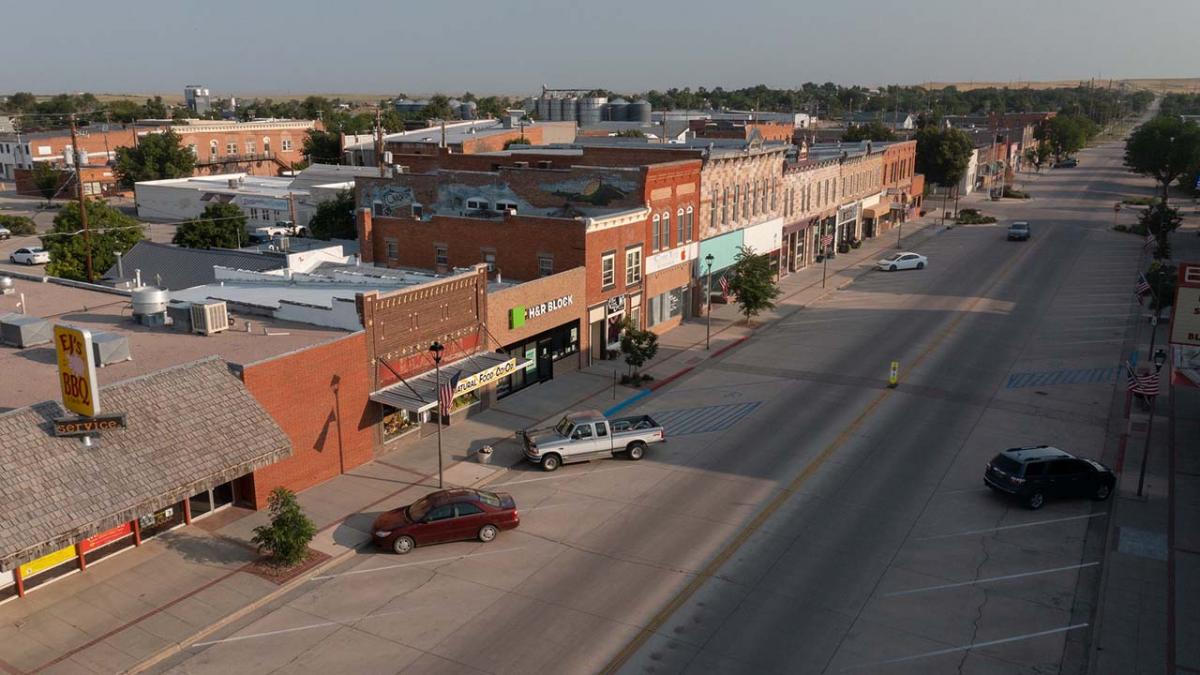USDA/Flickr.
The 2020 Nebraska Rural Poll data showed that most rural Nebraskans were financially resilient, with most having savings available to cover a financial emergency. However, certain groups of respondents indicated they would have a hard time accessing sources to cover an emergency. The pandemic has impacted Nebraskans in many ways, including their finances. Some businesses temporarily closed, laid off employees or shifted to new methods of operation. Given that, what financial impacts have rural Nebraskans experienced as a result of the pandemic?
Though many rural Nebraskans (51%) said that their company or workplace was affected or disrupted by the pandemic a fair amount or a great deal, only three in ten (30%) said their financial health was impacted at least a fair amount. In fact, a similar amount (28%) said their financial health was not at all affected by the pandemic, while 42% said it was affected not much.
Extent Financial Items Affected or Disrupted by Pandemic

However, these impacts were not universally felt. Certain groups were more likely to report their financial health was affected at least a fair amount. Persons with the lowest household incomes were more likely than persons with higher incomes to say their financial health was affected at least a fair amount. Just over four in ten persons with household incomes under $40,000 (42%) said their financial health was affected a fair amount or a great deal, compared to 20% of persons with household incomes of $100,000 or more. Other groups most likely to say their financial health was affected by at least a fair amount included: residents of both the Panhandle and Northeast regions (35%), persons with at least some college education (but not a four year degree) (36%), and persons with food service or personal care occupations (46%).
In addition, the Rural Poll asked a question to measure specific economic impacts from the pandemic their household experienced during the past year. Two out of ten rural Nebraskans said someone in their household had a loss of income during the past year and 16% said someone in the household had their hours reduced. Eleven percent of rural Nebraskans indicated someone in their household were temporarily laid off or reduced hours of operation of a business.
The same groups who were most likely to say their financial health was affected by the pandemic were also most likely to say they experienced some of these economic impacts from the pandemic during the past year. Persons with the lowest household incomes were more likely than persons with higher incomes to say someone in their household experienced the following in the past year: were temporarily laid off, lost their job, and had hours reduced. For example, 16% of persons with household incomes under $40,000 said someone in their household was temporarily laid off, compared to approximately 8% of persons with household incomes of $75,000 or more. They were also less likely than persons with higher incomes to say someone in their household increased their income or received paid time off from their employer if someone in the household was infected with COVID-19.
Economic Impacts Experienced by Rural Nebraskan Households

Persons with some college education (but less than a four year degree) were more likely than persons with both more and less education to say the following items were experienced by someone in their household: were temporarily laid off, had hours reduced, had a loss of income, and reduced hours of operation of business. As an example, almost one-quarter (24%) of persons with some college education (but less than a four year degree) said someone in their household had a loss of income during the past year, compared to approximately 17% of persons with both more and less education.
Finally, persons with food service or personal care occupations were one of the occupation groups most likely to say someone in their household had a loss of income during the past year. Just under three in ten persons with these types of occupations said someone in the household had a loss of income. Furthermore, 14% of persons with these types of occupations indicated someone in their household was temporarily laid off during the past year.
So, while most rural Nebraskans said their financial health was either not at all impacted or not much by the pandemic, the financial impacts were not universal across the state. Low income households, persons with some college education (but not a four year degree) and persons with food service or personal care occupations appeared to be harder hit financially. These groups were probably less likely to have jobs that could be done remotely or had employers that were more likely to have shut down during the pandemic. And, these groups were also less likely to be financially resilient from last year’s survey and so unable to easily absorb income losses.


